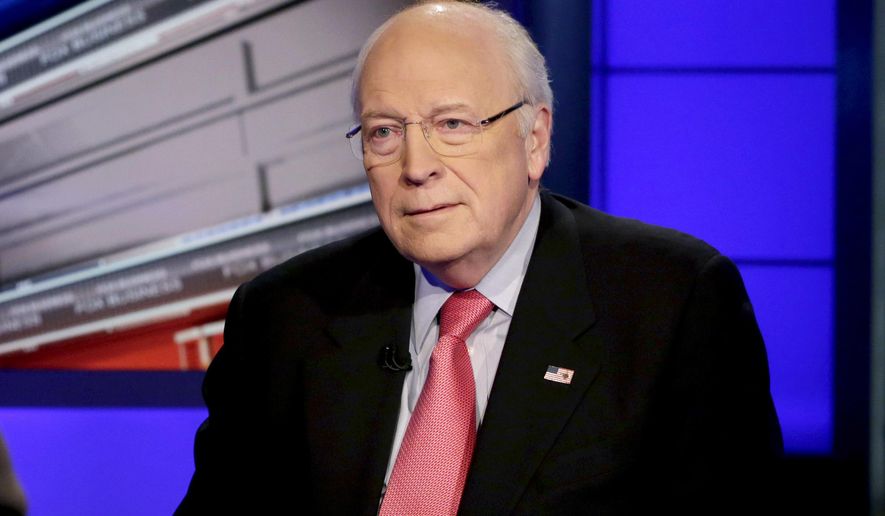Russia may have committed an “act of war” by interfering in last year’s White House race, former Vice President Dick Cheney said Monday.
Mr. Cheney did anything but downplay Russian President Vladimir Putin’s widely-purported role in the November election while speaking this week at the Economic Times’ Global Business Summit 2017 in New Delhi.
“There’s no question there was a very serious effort made by Mr. Putin and his government, his organization, to interfere in major ways with our basic fundamental democratic processes,” he told attendees.
“In some quarters, that would be considered an act of war,” added Mr. Cheney, who served for eight years under President George W. Bush.
The U.S. intelligence community has concluded that Mr. Putin likely ordered an influence campaign meant to hinder former Democratic candidate Hillary Clinton’s White House bid, paving the way for state-sponsored hackers to penetrate Mrs. Clinton’s campaign manager and other targets before ultimately releasing their stolen emails through conduits including WikiLeaks.
Washington hasn’t officially equated the supposed election meddling to an act of cyberwar, however, notwithstanding the opinions of both Democratic and Republican members of the House and Senate.
“I actually think that their engagement was an act of war, an act of hybrid warfare, and I think that’s why the American people should be concerned about it,” Rep. Jackie Speier, California Democrat, said at a House Intelligence Committee hearing last week.
Sen. John McCain, Arizona Republican, said in December that such an attack is “an act of war.”
“And so we have to make sure that there is a price to pay so that we can perhaps persuade Russians to stop this kind of attacks on our very fundamentals of democracy,” he said.
The U.S. government doesn’t currently have a definition for what exactly constitutes an act of “cyberwar,” however, prompting the proposal of a bipartisan resolution earlier this month that would request the adoption of a clear and comprehensive cybersecurity policy for waging and responding to sophisticated cyberattacks.
Moscow has repeatedly denied deploying hackers to meddle in last year’s U.S. presidential election, contrary to the findings of the U.S. intelligence community and private security researchers alike.
“I would not underestimate the weight, that we as Americans, assign to the Russian attempts to interfere with our internal political processes,” Mr. Cheney said Monday.
• Andrew Blake can be reached at ablake@washingtontimes.com.




Please read our comment policy before commenting.